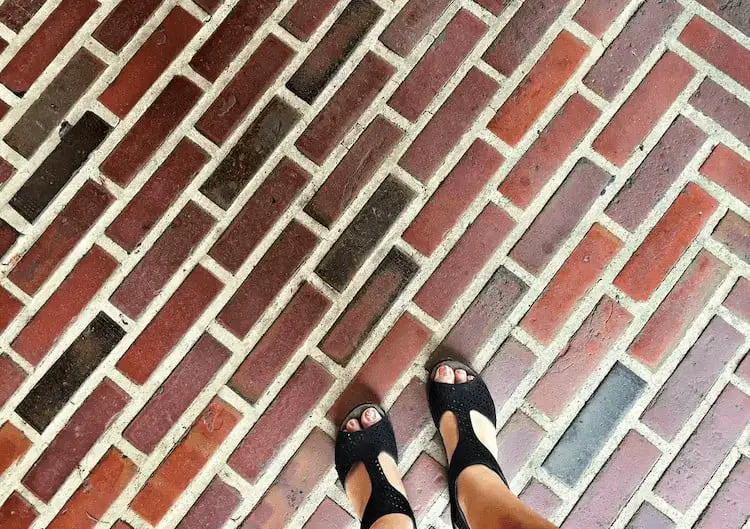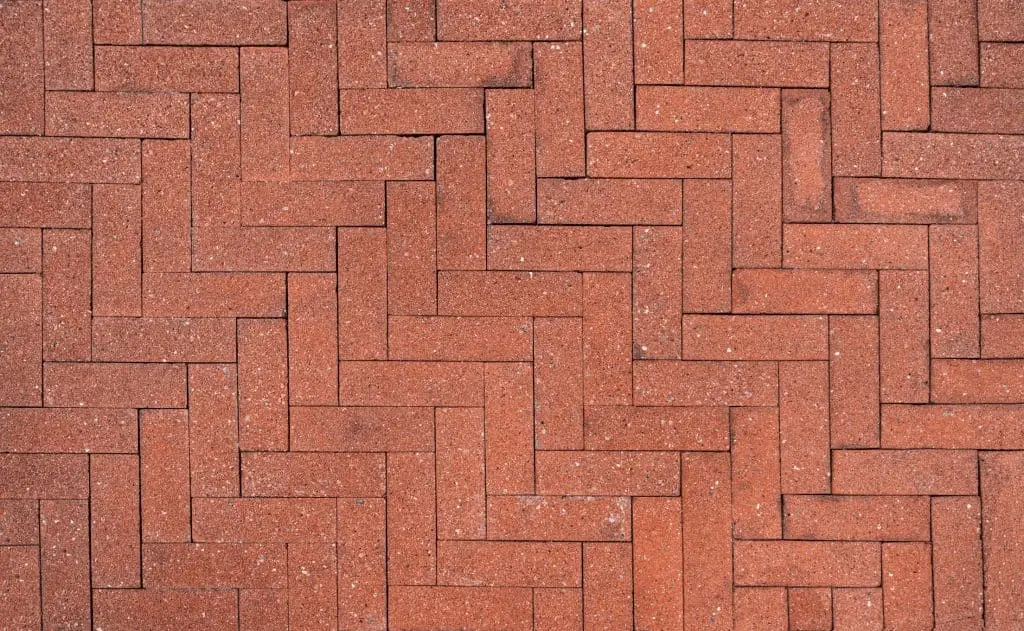Brick floors are relatively easy to maintain compared to other types of floors and if you want to know how to clean brick floors, then you’ve come to the right place.
When a brick floor is dirty, the grit and dirt on it, when left for a long time, will act like sandpaper-ruining the seal and exposing the bricks. This leads to the evident degradation of the brick floor.
There are three methods involved in cleaning a brick floor, sweeping and vacuuming, steam cleaning and finally, mopping.
Therefore, your brick floor must be cleaned properly and regularly. Let’s look into more details on how to clean brick floors.
How to clean brick floors
Table of Contents
Sweeping and Vacuuming
To remove grit and dirt from brick floors, they should be swept or vacuumed daily. You can sweep brick floors with a regular broom. While sweeping, ensure you check the mortar in between the bricks; more dirt and dust tend to hide there.
For a deeper and more thorough cleaning of brick floors, get a vacuum set for hard floors. If the vacuum has a soft-brush attachment, use it to clean pet hair and fine dust further after the main cleaning.
Do not use hard attachments like beater bars; they can damage the brick, seal, or mortar.
Unsealed bricks tend to generate a large amount of grit, particularly in high-traffic areas. The grit created can damage other parts of the house like tiles, carpet, or hardwood. Therefore, you must sweep or vacuum your brick floor daily to control the amount of grit on the floor.
Mopping
Choose A Cleaning Solution
The best option among cleaning solutions for brick floors is a mild alkaline cleaner. It is safe to use it on sealed surfaces and hard floors. Below are some effective home remedies you can use:
Borax
Completely dissolve two tablespoons of borax in four liters of water. When undiluted, borax is a strong alkaline cleaner, therefore, apply only a small amount of borax on your brick floor.
Vinegar
Mix half a cup of vinegar with four liters of water to get a solution that is suitable for cleaning your brick floor. Naturally, vinegar is an acidic cleaner and it works effectively in disinfecting surfaces, getting rid of the odor, and enhancing brilliance.
Baking soda
Mix thoroughly two tablespoons of baking soda with four liters of water and make sure the powder is completely dissolved. Baking soda is alkaline too, but milder than borax. Baking soda effectively gets rid of odors and tough stains.
Mop The Brick Floor
Mopping is next after getting a floor cleaning solution. If you have opted for a commercial cleaning product, make sure you follow the instructions on the label as regards mixing the solution.
When you are mopping brick floors, it is vital to make use of a damp mop. After dipping the mop in the chosen cleaning solution, wring water out of the mop as much as possible. A spin mop is suitable for this as it easily wrings out the most solution from the mop.
While mopping brick floors, apply a bit more force than you would on other types of floors. Move the mop back and forth on the bricks and make sure that you clean the tiny crevices that are in between the bricks.
Do not use a flat cloth or sponge mops because they are not suitable for the rough surface of bricks; use a mop with microfiber strings. If there is stubborn dirt or stain on the brick floor, thoroughly scrub the area with a stiff nylon brush.
Check the cleaning solution regularly as you mop the floor. If it begins to appear dirty or mucky, pour it away and get a fresh solution. If you leave the solution dirty and continue mopping, you are literally spreading dirt all over again.
Dry The Brick Floor
After mopping, use a soft towel to get rid of excess water. Do not forget to dry the water in crevices and grout lines so that the leftover solution will not damage the floor. Drying out the floor completely will also prevent the formation of distasteful smudges or dirty stripes on the floor.
Steam Cleaning
Having a steam cleaner in your home is very beneficial. Steam cleaners can be used at home on most surfaces like bathroom tiles and kitchen counters. They are also very effective in deep cleaning brick floors, especially when you want to get rid of stains and spills.
Steam from the machine will find its way into the tiny pores of the brick and force out dirt, moisture, and dust. The steam will also disinfect the floor without the need of applying chemicals.
It will also get rid of odor from the floor. Furthermore, steam cleaning is a very good way to prepare your floor just before sealing or resealing it.
Read: How to steam clean concrete floors
Tackling Dust After Installation Of Brick Floors
It is a general issue that new brick floors tend to generate much dust from their surface. The dust is normally very fine and pale in color. It can make a mess of your home when it is foot-tracked into other areas of your home.
This issue comes up because some bricklayers use hydrochloric acid to clean the bricks after they have been installed. Hydrochloric acid is also known as muriatic acid. It is very corrosive but excellent in cleaning surfaces like brick and concrete.
Hydrochloric acid reacts with the mortar or limestone grout usually used between bricks in buildings and flooring. So, the white or pale dust you noticed after installation of bricks is as a result of hydrochloric acid extracting lime from the limestone grout.
To remove the dust, you will need to continuously flush the bricks with water until the hydrochloric acid is out.
It is good news that these days, most bricklayers make use of a more pricey commercial product to clean bricks after they have been installed. The product cleans bricks effectively and prevents the issue of having too much dust on bricks.
Conclusion
We’ve covered a few methods on how to clean brick floors. Although brick floors have rustic simplicity and can appear old-school, they have a beautiful look. Brick floors are relatively easy to clean.
To tackle grit and dust on brick floors, you need to vacuum or sweep the floor daily as well as using a damp mop to deep clean the floor once in a week. Take to these instructions and have an ever-brilliant brick floor.

